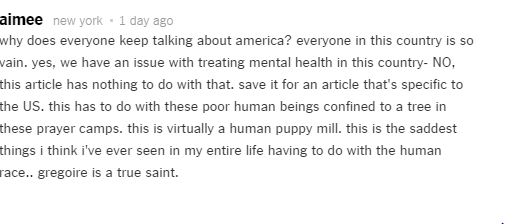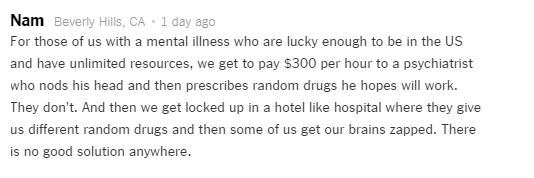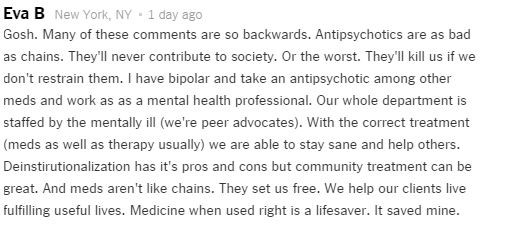In the heart of Togo lies a spiritual prayer ground- Jesus Is the Solution camp; a place where people with mental illnesses are confined. Most of the mentally unstable individuals in the camp suffer from delusional schizophrenia. The clinking sound of chains tying the mentally ill to trees, combined with the occasional shouting- “don’t you pray for me,” by one of the patients, Mr. Gbedjeha, only begin to describe the awful conditions in the camp.
As the name implies, mental illness is the disruption of the mental faculties, which is more often than not, referred to as psychosis. Psychosis is a state of health where the patient loses touch with reality, manifesting either as delusions or hallucinations and often results from alcohol and drug abuse (especially illegal drugs), brain diseases, tumors, and the abuse of prescribed drug s such as steroids and stimulants. Psychotic tell-tale signs often begin expressing themselves as schizophrenia, bipolar and personality disorders. However in this part of the world, a majority of mental illnesses are allotted to supernatural causations, which explains several spiritual and “un-medical” approaches to treatment options.
Reporter, Samuel Kpavouvou rightly pointed out that mental illnesses are an unending struggle in every society. The ways through which families of the mentally unstable respond to the challenge in the developing world seems a little different from what is obtainable in the West. Families are not to blame for seeking spiritual alternatives to mental illness or allotting minimal finance to the cause. According to the World Health Organization (WHO), 1 percent of health spending is earmarked for mental illness.
Globally, health priorities have always relegated the treatment of mental illness far below other deadly diseases like malaria, H.I.V and measles- a reason the number of people with mental instability is on the rise. However, a more proactive step through the adoption of the United Nations (UN) global development goals. The WHO has also reiterated its re-commitment to end chaining of mentally ill people across the world.
Nevertheless, while attempting to discuss the dehumanizing conditions of people with mental illness, Kpavouvou, whether consciously or unintentionally, painted Africans in a not-so-good light. By emphatically dwelling more on the activities in the camps, he described Africans as being too apprehensive and superstitious. There is an element of truth in this as many of the illnesses are presumed to be related to supernatural forces. One of the many reasons why those affected are quarantined in prayer where they get “their healing.” No wonder Mr. Gbedjeha believed “the demons returned” when he lost his sanity some weeks after discharging himself from Jesus Is the Solution camp. Patients are kept outside the camps in harsh weather awaiting the miraculous.
Perhaps, their frustration also makes them aggressive. “We try to talk people out of going to the camps,” said Dr. Simliwa Kolou Valentin Dassa, director of Togo’s mental health services, who knew the liable complications associated with lack of medication and poor hygiene. The result is simply aggression.
Sedation is perhaps the initial solution used by most psychiatrists. Mr. Gbedjeha was sedated at St. John the Divine, a small Roman Catholic mental clinic in Togo. This was the practicable solution, however something of great importance is the fact that sedatives tend to aggravate insanity, placing people with mental illnesses in worse conditions.
Founder of Saint Camille-de Lellis, Gregoire Ahongbonon however took a very noble step, here’s what he did.
Perhaps, if African governments would only pay closer attention to mental illnesses, the degrading conditions under which patients are forced to live will reduce and gradually become non-existent, given that proven medical treatments are also administered.
For more insight, listen to the podcast below










